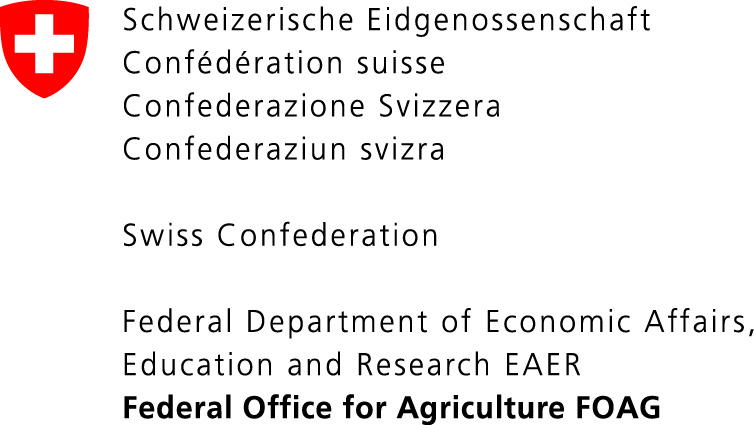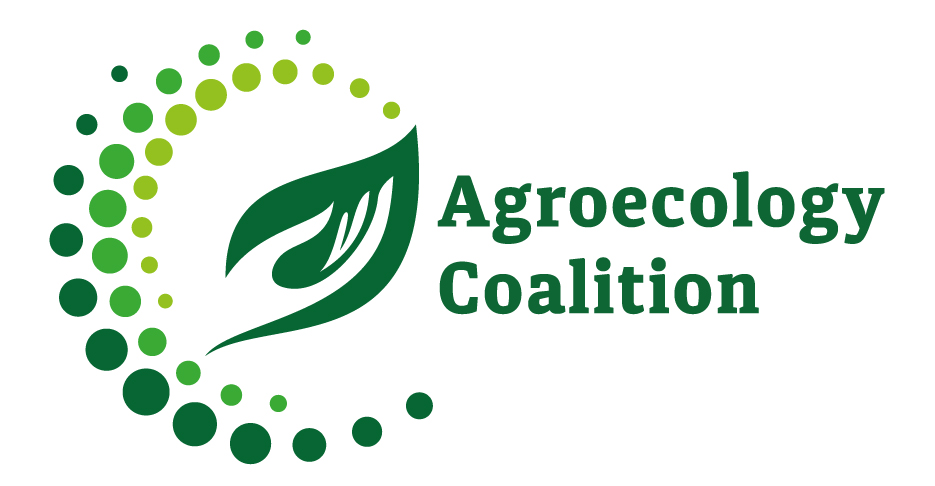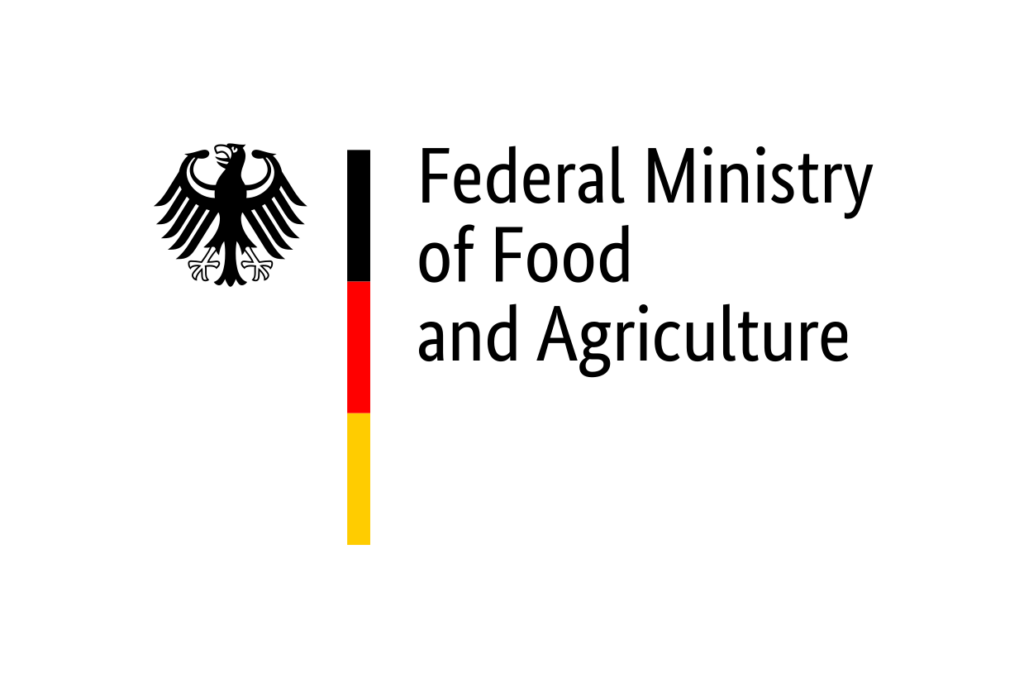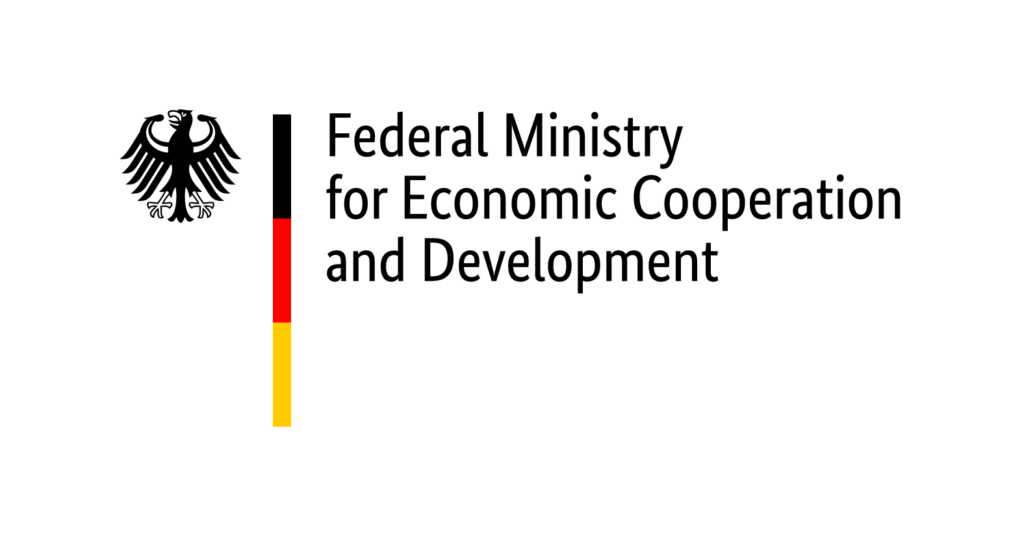Prospects for achieving food systems transformation through agroecology
Swiss Federal Office for Agriculture (FOAG)
Agroecology Coalition
Federal Ministry of Food and Agriculture
Federal Ministry for Economic Cooperation and Development
Aktivierung erforderlich
Wir möchten Sie darauf hinweisen, dass nach der Aktivierung Ihre Daten an Youtube übermittelt werden.
Summary of topics and results
On Friday, 19 January 2024, the Swiss Federal Office for Agriculture (FOAG), the Agroecology Coalition, the Federal Ministry of Food and Agriculture (BMEL) and the Federal Ministry for Economic Cooperation and Development (BMZ) organized an expert panel on agroecology. The expert panel highlighted different countries’ perspectives on agroecology and presented different tools for measuring agroecology. The organisers and speakers are members of the Agroecology Coalition that emerged from the 2021 UN Food Systems Summit.
State Secretary Jochen Flasbarth opened the event by highlighting the opportunity that this year holds in the form of the Conferences of the Parties of all three Rio conventions. From his perspective, agroecology offers a holistic response with its 13 principles, while at the same time contributing to climate stewardship and biodiversity protection. He reaffirmed Germany’s commitment to integrated solutions.
In his keynote speech, Prof Dr Dr Urs Niggli, President of the Swiss Institute for Agroecology, highlighted the importance of increasing diversity in farms and landscapes while maintaining and improving productivity. He emphasised the need to distinguish between ways forward (e.g. organic, regenerative or precision farming) and the ultimate goal of achieving productive agricultural systems. This goal necessitates tools for determining priorities, levers and effects along the value chain, for co-learning and for scientific innovations, among others.
In a roundtable discussion on different national perspectives on agroecology, representatives from Mexico, Switzerland and Uganda presented concrete implementation cases. Sol Ortíz, General Director of Prospective Policies and Climate Change in the Mexican Ministry of Agriculture, stated that at national level, agroecology is promoted through two major programmes: 1) Production for wellbeing and 2) Sembrando Vida. The joint creation and mutual exchange of knowledge between farmers, scientists, civil society and governments is essential for these programmes. Josephine Akia Luyimbazi, Country Director of PELUM in Uganda, noted that agroecology increases the capability of farmers to be self-reliant by reducing dependence on external inputs such as chemical fertilisers, and contributes to increased and diversified production of healthy and culturally adapted food. PELUM supports capacity building among member organisations and offers financial support for transitioning to agroecological production systems. State Secretary Christian Hofer, Director of the Swiss Federal Office for Agriculture, highlighted that in Switzerland, agroecological principles are used to ensure policy coherence and further develop Swiss agricultural policy. Last year, the government released a report on the future orientation of Switzerland’s agriculture policy beyond 2030, which proposes agroecological measures (e.g. a target agreement with retailers, strengthening social security protection, notification requirement for fertilisers).
The second part of the expert panel focused on the presentation of three different tools for evaluating and measuring agroecological initiatives, holdings and enterprises. Rémi Cluset (FAO) presented the Tool for Agroecological Performance Evaluation (TAPE) a tool to measure the multidimensional performance of agroecology. TAPE can assess all types of production systems and agricultural sub-sectors and is adaptable to local contexts and languages. Stefanie Pondini (Biovision foundation) highlighted that small- and medium sized enterpriseS (SMEs) can make an important contribution to the food systems transformation. Biovision and partners developed the Business Agroecology Criteria Tool (B-ACT) that provides a holistic enterprise assessment helping to identify how agroecologically oriented an enterprise is. The Agroecology Finance Tracking Tool was presented by Oliver Oliveros (Agroecology Coalition). The tool helps to assess how agroecologically oriented a given project or programme is.
State Secretary Silvia Bender concluded by noting that our current food systems are not future-proof. The number of people who suffer from hunger or malnourishment is rising again. This means that we urgently need to work together, build bridges and learn from each other, by collaborating across nations and continents to achieve a world without hunger by 2030.
Speakers
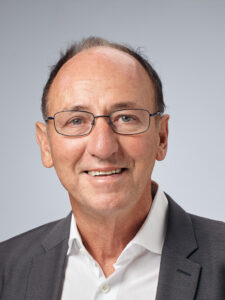
Urs Niggli
Keynote-SpeakerPresident / Agroecology Science Show CV / Vita
CV / Vita
Urs Niggli is one of the world’s foremost agricultural scientists and acted as Director of the Research Institute of Organic Agriculture (FiBL) for many years until March 2020. Under his leadership FiBL grew from 20 staff members to its current 200, became a leading research establishment in the area of organic agriculture, and developed into a European network with offices in Germany, France, Austria and Hungary as well as a representation in Brussels. Mr Niggli is President of the Institute of Agroecology, which he founded in April 2020. He is also President of FiBL Austria and scientific advisor of Agroscope. In addition, he is an honorary professor at Kassel-Witzenhausen University, holding lectures on the principles of organic agriculture in the winter semester and presenting case studies on organic farming in the EU in the summer semester, as well as at Beijing Agricultural University. In November 2023, Urs Niggli received a high-profile scientific award from the Dr Ernst Leopold Klipstein Foundation for his achievements in the field of agri-ecological agricultural and food systems.
Close CV / Vita
Genna Tesdall
FacilitatorDirector / YPARD Show CV / Vita
CV / Vita
Genna Tesdall (she/her) is the Director of the network Young Professionals for Agricultural Development (YPARD). She is an agriculture systems thinker taking on projects to sustain the environment and people, striving to be a servant-leader in order to foster equality between generations (and all delimiters of privilege). Before joining YPARD, she was the federal agricultural policy officer at the German Rural Youth Association (Bund der Deutschen Landjugend) (2020). As a Fulbright Researcher at the Humboldt University of Berlin (2018-19), she focused on youth involvement in agricultural policy, and was the former president (2013-14) of the International Association of Agriculture and Related Sciences Students (IAAS). She is a graduate of the global oriented Iowa State (2015) and Penn State Universities (2018) with a M.Sc. in Plant Pathology and International Agriculture and Development.
Close CV / Vita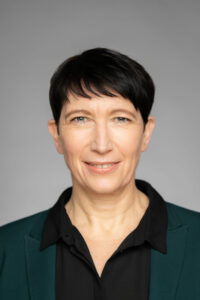
Silvia Bender
PanellistState Secretary / Federal Ministry of Food and Agriculture of Germany (BMEL) Show CV / Vita
CV / Vita
After having completed her studies in Bonn, agricultural scientist Silvia Bender initially coordinated the “Lebendige Natur durch Landwirtschaft” (Vibrant Nature through Agriculture) project at the university’s Institute for Agricultural Botany before working as an assistant to the management of Bioland Baden-Württemberg e.V. After having performed various tasks at the Bioland Federal Association, Ms. Bender worked as an advisor (desk officer) for rural areas, agriculture and animal welfare to the Alliance 90/The Greens parliamentary group in the Bundestag for almost two legislative terms. Her career path took her as Head of Division at the Rhineland-Palatinate Ministry of the Environment, Food, Energy and Forestry to Rhineland-Palatinate’s representation to the Federation at the Bundesrat in Berlin. She acted as Head of the Directorate-General for Biodiversity at the Bund für Umwelt und Naturschutz Deutschland (BUND) (German Federation for the Environment and Nature Conservation) before being appointed as State Secretary in Brandenburg. She has been Permanent State Secretary at the Federal Ministry of Food and Agriculture (BMEL) since December 2021.
Close CV / Vita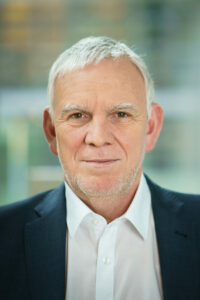
Jochen Flasbarth
PanellistState Secretary / Federal Ministry for Economic Cooperation and Development (BMZ) Show CV / Vita
CV / Vita
Jochen Flasbarth took office as State Secretary at the Federal Ministry for Economic Cooperation and Development in December 2021. From 2013 to 2021, he was State Secretary at the Federal Ministry for the Environment, Nature Conservation and Nuclear Safety. Prior to that, he held the position of President of the Federal Environment Agency for four years. He holds a degree in economics from the Universities of Münster and Bonn.
Close CV / Vita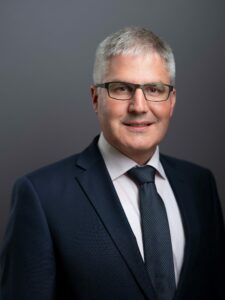
Christian Hofer
PanellistState Secretary / FOAG Show CV / Vita
CV / Vita
Christian Hofer has been the Director of the Federal Office for Agriculture (FOAG) since 1 December 2019. He was previously Head of the Bern Cantonal Office for Agriculture and Nature (LANAT) for almost two years. From 2009 to 2017, he served as an Assistant Director of the FOAG, responsible for the Direct Payments and Rural Development Directorate. He studied Agronomic Engineering (specialising in crop production) at the Federal Institute of Technology (ETH) Zurich, graduating in1998. He also qualified as a teacher and worked as an agricultural consultant at Inforama Rütti (Bern). From 2000 to 2003, he managed the Profi Lait office and also worked as a scientist for the Swiss Grassland Society (AGFF). In 2003, he became Head of Sales (Switzerland) at DeLaval – the Swedish manufacturer of dairy farming equipment – in Sursee (Lucerne). He also obtained an MBA in Integrated Management from Bern University of Applied Sciences (BFH).
Close CV / Vita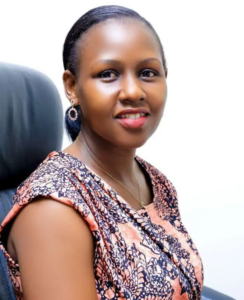
Josephine Akia Luyimbazi
PanellistCountry Coordinator / PELUM Uganda Show CV / Vita
CV / Vita
Josephine Akia Luyimbazi is the Country Coordinator of Participatory Ecological Land Use Management (PELUM) Uganda, a national network of 72 like-minded organisations working together to promote agroecology in Uganda. Josephine is a social scientist with over 15 years of experience in sustainable agriculture. She is an expert and advocate for sustainable and healthy agricultural and food systems that focus on improving the livelihoods of farming communities. As an agroecologist, Josephine Akia Luyimbazi is actively engaged in empowering and supporting farming communities, women and youth to improve their livelihoods through agroecological principles and sustainable solutions.
Close CV / Vita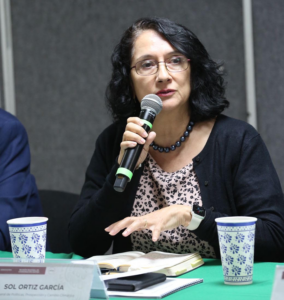
Sol Ortíz García
PanellistGeneral Director of Prospective Policies and Climate Change / Ministry for Agriculture, Mexico Show CV / Vita
CV / Vita
Sol Ortiz García is General Director of Policies, Prospective and Climate Change at the Ministry of Agriculture and Rural Development of Mexico since 2018. She is currently coordinating the implementation of National Soil Strategy for Sustainable Agriculture and the National Strategy for the Conservation and Sustainable Use of Pollinators in Mexico. Since 2023, she is Chair of Promote Pollinators initiative. Sol Ortiz is Executive Secretary of the Sectoral Committee on Genetic Resources for Food and Agriculture and was elected Chair of the Soil Partnership for Latin America and the Caribbean (ASLAC). In 2022 Sol was elected as the Co-Chair of the Platform for Climate Action in Agriculture in Latin America and the Caribbean (PLACA), and she is currently Chair of PLACA for the yearly period. She holds a degree in Biology from the Faculty of Sciences of the National Autonomous University of Mexico (UNAM) and a PhD in Ecology from the Institute of Ecology, also at UNAM. She has worked in the public sector since 2001, first at the National Institute of Ecology (INE) from the Ministry of Environment and Natural Resources, as advisor to the INE´s President and later as Coordinator of the Biosafety Programme. From 2007 to 2018, she worked for the National Council for Science and Technology (CONACYT) at the Executive Secretariat of the Interministerial Commission which deals with issues related to the safe use of biotechnology. She has published reviewed papers, book chapters and collaborated with international organizations representing Mexico.
Close CV / Vita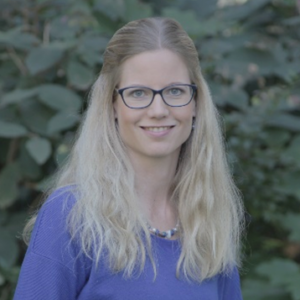
Stefanie Pondini
PanellistCo-Lead of the Policy and Advocacy department / Biovision Show CV / Vita
CV / Vita
Stefanie Pondini is the Co-Lead of the Policy and Advocacy department of the Biovision Foundation where she is currently implementing the programme “Investing in the Agroecological Business Case” (iABC). The goal of this programme is to catalyse the scaling of agroecology through increased availability of suitable capital and a more enabling environment for agroecological enterprises. Before joining Biovision, Stefanie worked for GIZ in India, with the aim of strengthening the participation and awareness of slum dwellers around water and sanitation. Stefanie studied human geography as well as political and environmental sciences at the University of Zurich.
Close CV / Vita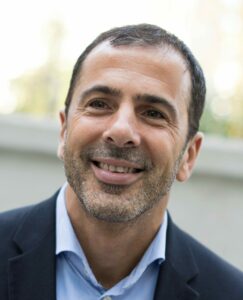
Rémi Cluset
PanellistAdvisor / FAO Show CV / Vita
CV / Vita
Mr Rémi CLUSET, is advisor on agroecology of the director of NSP (Plant Production and Protection Division) in FAO. He organized FAO’s international cycle of consultation on Agroecology from 2015 to 2019 and contributed to deliverables related to the 10 Elements of agroecology, the Scaling up Initiative on agroecology, the Agroecology knowledge hub and the digital Tool for Agroecology Performance Evaluation (TAPE) that he is currently co-leading for FAO in partnership with NSA (Animal Production and Health) Division. Rémi CLUSET holds two Master degrees in agronomy and in environment and public policies and has 25 years’ work experience at field level with farmer organizations and with the Government of France in various positions related to agroecology at both local, national and international levels.
Close CV / Vita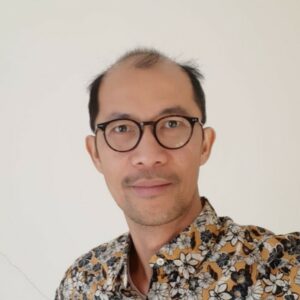
Oliver Oliveros
PanellistCoordinator / Agroecology Coalition Show CV / Vita
CV / Vita
Mr. Oliver Oliveros is the Coordinator of the Agroecology Coalition. Prior to this role, we was previously interim Executive Director of the Global Alliance for the Future of Food, a coalition of foundations working to leverage their resources to help shift food systems towards greater sustainability, security, and equity. He also served as the UN Food Systems Summit Secretariat Champions Network Engagement Lead, stewarding a global network of more than 100 food systems experts to maximize the value of their contribution to the Summit. Oliver previously worked as the Deputy Director at Agropolis Fondation, the French foundation for scientific cooperation in agriculture and sustainable development; as the Global Coordinator of the DURAS Project which focused on scientific and civil society communities research collaboration; and as Partnership Officer at the Global Forum on Agricultural Research (GFAR) Secretariat in FAO in Rome, working on research partnerships and stakeholder engagement. Before coming to Europe in 1999, he served at the Ministry of Socio-economic Planning in the Philippines where he was extensively involved in project evaluation and investment programming in the agriculture and rural development sector as well as in the formulation of the country’s Agenda 21 and Medium-Term Development Plan.
Close CV / Vita
